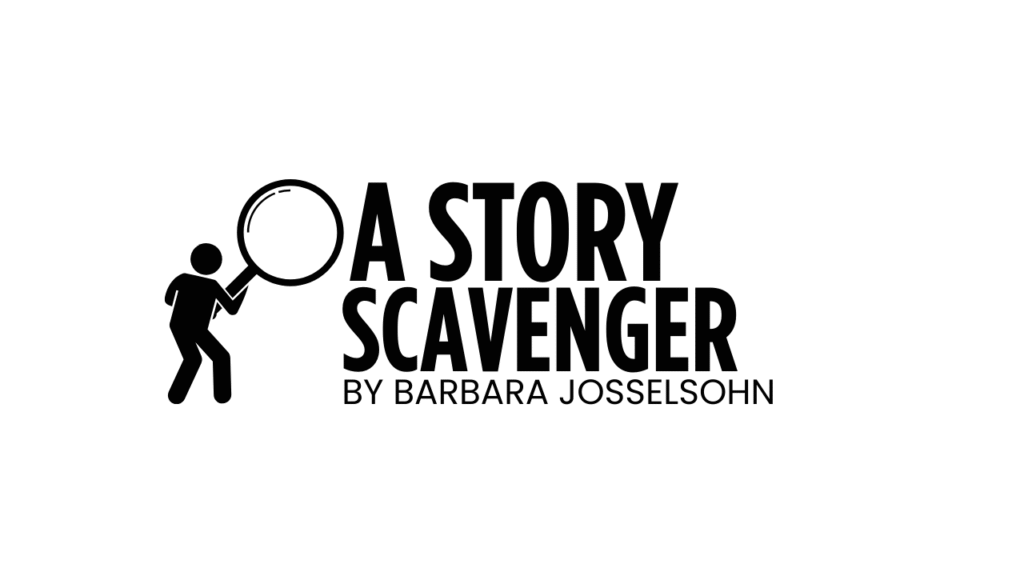BY BARBARA JOSSELSOHN
Not too long ago, my family and I took a week-long vacation to Sonoma. The weather was glorious, and eager to spend lots of time outdoors, I asked the hotel concierge for the best local hiking trails. She told me that the Jack London State Historic Park had both trails and a museum dedicated to London’s life and work. A literary museum combined with a day of hiking? I was sold!
We entered the museum first, and—if you’re a writer, you’ll get this! – I couldn’t tear myself away from the museum to start our hike. I had to study every photograph in the exhibit, read every placard, and watch every video showing grainy black-and-white images of the Londons in the early 1900s. I peppered the docents with questions, even as my husband and daughter groaned impatiently: What were London’s parents like? Did he have siblings? Where did his adventurous spirit come from? Why was he so drawn to places like Hawaii? How did he come to die so young – only 40 years old?
And then, of course, I had just as many questions about his wife, Charmian, a woman far ahead of her times. What was her childhood like? How did she become so independent? What caused her to buck so many cultural conventions?
I finally gave in to my family’s growing frustration and started to head out of the building, but not before scouring the adjacent gift shop and making a mental note of the books I would come back later to buy.
Sound familiar? If so, then I have a term to describe this quirk in our constitution. Writers, I’ve determined, are story scavengers. Just like Templeton, the gluttonous rat in E.B. White’s Charlotte’s Web who devours the crumbs and rinds and food scraps that people no longer want, we gather tasty morsels and tidbits from the anecdotes and histories we encounter. We fill up on the details others have left behind for us to discover. And we let our imaginations run wild with them.
In a way, the idea of being a scavenger for story ideas feels a bit counterintuitive. How often was I told, especially when I was just starting out as a writer, that I should write what I know? And there’s wisdom to that advice, of course. But the more I write, the more I realize that the best stories don’t always originate from within. Often they start…well, somewhere out there.
Last summer my husband and I took a bucket-list trip to southern France, where we spent many afternoons touring both large cities and tiny villages. We visited ancient churches, strolled cobblestone streets dating back centuries, and stood on the sites where some of the most consequential events of the French Resistance occurred. But for me, one most important outings we had was a ride on a steam train up into the mountains and around the gorges of what’s known as the Ardèche region. There we heard a story of a remarkable village that helped save more than 3,000 Jewish people, most of them children, during the Nazi occupation.
What happens to you when you hear a story that captures your imagination? That makes you long for a quiet corner and your laptop? For me, it’s a physical feeling, almost a tingle, that crawls up my back. Then the questions start, and then comes that quiet certainty: I have found my next story.
There on the steam train, I wanted to know more: Who were the villagers who accomplished this feat? Who were the leaders who inspired them? What spurred them to put their own lives, and the lives of their families, at risk to save all those people?
Where did they gather strength when the odds were stacked against them? Who did they turn to when they needed to muster resilience and reassert their purpose?
And finally, I zeroed in on the most important question of all, a question for me and me alone: How do I translate this historical moment, this real-life event, into a fictional narrative that will adequately convey both the specific risk and the universal themes inherent in what transpired? How do I transform the feelings I have into the best words to fill a novel?
I know that many writers carry a notebook to jot down ideas they don’t want to forget. I do this too (and when I’ve forgotten to bring along a notebook – which happens more often than I’d like to admit – I’m glad for my phone. ) But I’ve realized lately that I don’t need written notes for the most impactful stories I encounter. The ones that affect me most deeply tend to burrow into my memory. And when I do forget any details, retrieving them isn’t all that hard: If I imagine myself back in the location where I first heard them, they usually come back to mind.
I have other stories that came to me during that trip to France, and also during the visit to Sonoma. And one that showed up during a visit with my daughter to the New York Historical Society in Manhattan last month. It doesn’t require travel to scavenge stories, I’ve found. It simply requires an open mind.
Are you a story scavenger? Where did you scavenge last? Come on, fellow Templetons! The world is waiting for us to share the results of our latest binge!


